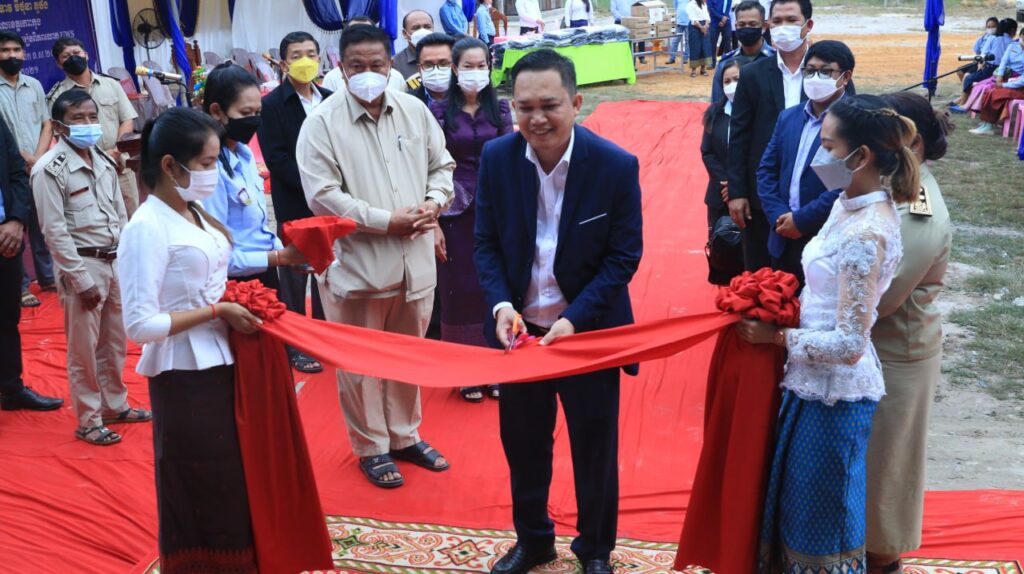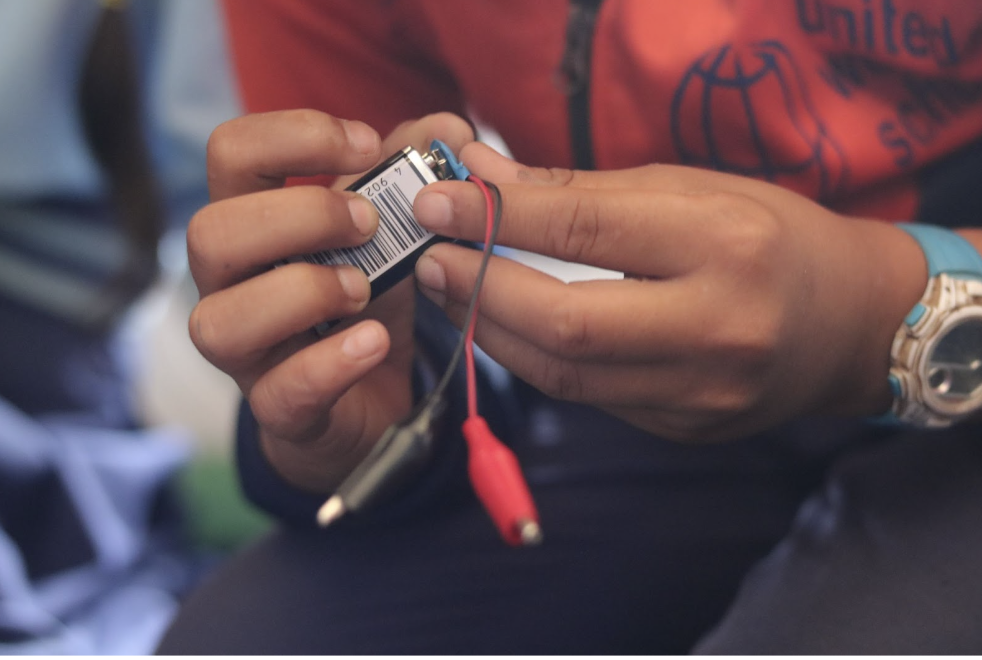
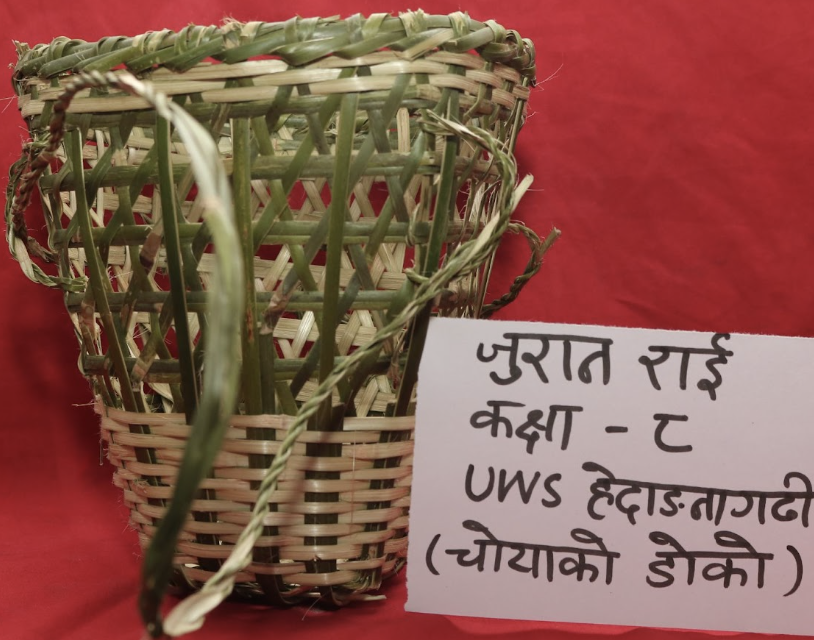
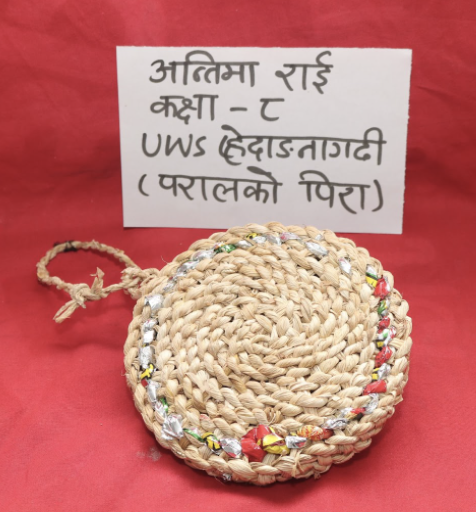
The Difference our Programme Will Make
At United World Schools, we're proud to have championed inclusive education from our very beginnings. Our teams work exceptionally hard to ensure that every girl and boy living in some of the world's hardest-to-reach communities is able to access the quality education that is their right.
Our Girls Will Be Girls programme, which starts in Spring 2023, forms a crucial component of furthering our inclusive education agenda.
All donations that were made as part of this appeal will help girls across Cambodia, Myanmar, Nepal and Madagascar tear down barriers to education and attend school with their heads held high. The matched income from the UK government will go directly to funding our girls' education programme in Cambodia and Nepal, helping girls to get an education, stay in school and achieve their potential.
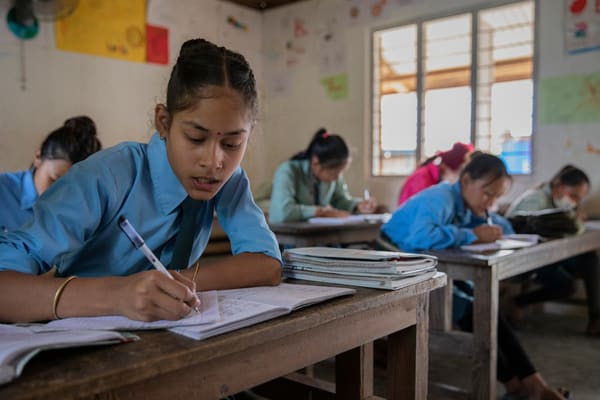
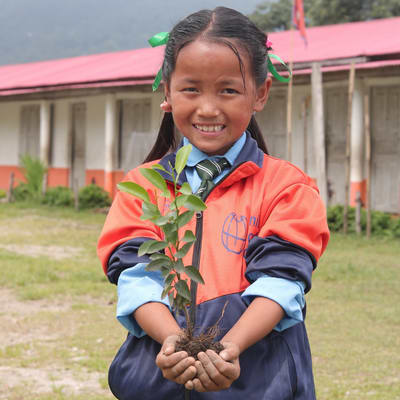
Meet Asha
Asha lives in a remote village in the Himalayas of Nepal, where she attends UWS Hedangnagadi School. But not long ago, Asha was one of the millions of children globally who drop out of school before completing primary education. She'd been forced to drop out of boarding school as her family couldn't afford the fees. When this happened, Asha and her parents were devastated, they were determined that Asha would continue her education and so looked for alternatives. UWS Hedangnagadi School provided the solution. At United World Schools, we believe that every child should have access to a free, quality education.
"After knowing that UWS provides quality education similar to that of the boarding school, we decided to enrol our children"
Asha's mother
Asha loves going to school, learning new things and playing with her friends. She is also involved in the STEAM (Science, Technology, Engineering, Arts and Maths) Club at her school – an initiative to create a learning space that gives children the opportunity to connect ideas with practice.
“I am very happy to join the STEAM Club because I am learning new things everyday,” says Asha who dreams of becoming a doctor and providing health facilities to the people in her remote community.
“I think I would be very sad if I didn’t get the chance to go to school and study. Seeing the other children, including my friends going to school would further make me sad”.
Thanks to your generosity, our Girls Will Be Girls programme will work with over 14,000 girls like Asha, so they can be pioneering, revolutionary, happy… whatever they want to be.
Our Programme
Through our Girls Will Be Girls programme, we aim to work with 20,000+ people over a three-year period to increase girls’ presence, participation and achievement in school.
Our innovative programme has four key areas:
1. Targeted support for out-of-school and at-risk girls:
Through our Girls Will Be Girls programme, we aim to work with 20,000+ people over a three-year period to increase girls’ presence, participation and achievement in school.
2. Gender-responsive households and communities:
We’ll support girls and families to challenge harmful gender norms, for example, where women are expected to by wives, housekeepers and reproducers. We will tackle this through community workshops in over 100 communities. By establishing girls’ clubs, we’ll create safe spaces for girls in school to talk about the issues they face and discuss solutions. We’ll carry out education and training sessions for girls to increase awareness of their bodies and rights.
3. Gender-responsive schools:
Harmful social and cultural norms are often reflected in schools. Through this programme we’ll train Education Officers to deliver training to teachers to build gender inclusive schools that challenge inequalities in the classroom. We’ll audit our WASH (Water, Sanitation and Hygiene) facilities and make upgrades to ensure the school environment is safe for girls and considers their specific needs.
4. Gender-responsive education systems:
To influence systemic level change, UWS will engage with government officials and education sector stakeholders on improving gender responsive approaches, gender inclusive teaching practices and school environments. We’ll raise awareness of harmful gender norms and increase support for girls’ education. We’ll facilitate meetings between local authorities and community representatives to amplify beneficiary voices.
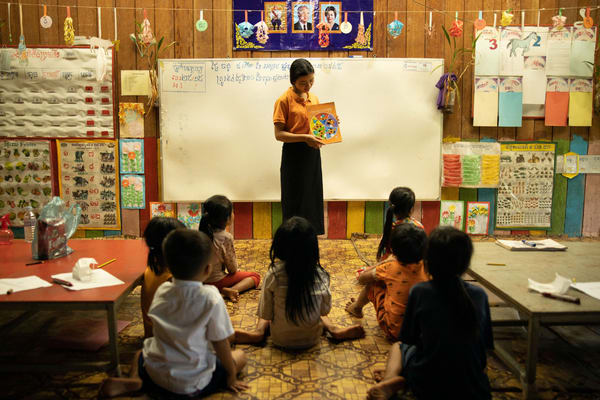
Thanks to your support
We will address the structural barriers that prevent girls from participating fully in education. Together, we will create systemic change for girls living in rural areas. We look forward to keeping you updated on the impact of our Girls Will Be Girls programme.
Usually this is due to differing gender-based cultural norms and expectations, such as child marriage and the social stigma surrounding menstruation. In Ratanakiri province, Cambodia, where UWS operates, nearly 60% of girls are married before they are 18 years old (Action Plan to Prevent & Respond to VAC 2017). Long walks to and from school also present additional safety concerns for girls due to the threat of gender-based violence.
Inclusive education is central to our education model. From the outset, we work in partnership with communities who commit to sending both girls and boys to school. Through our WASH (water, sanitation and hygiene) facilities and safeguarding measures (for which we have been accredited by Keeping Children Safe), we ensure the school environment is safe for girls and considers their needs. We hire and train community teachers who teach children in a language they understand (initially the local language) and use positive, child-centred teaching methods. For us, education is about every child feeling supported by their teachers and parents, safe in the classroom, and having the opportunity to pursue the futures they choose.
This is why we are proud to be working in partnership with Educate A Child (EAC), a global programme of the Education Above All Foundation, to deliver a Dropout Prevention Programme and further our inclusive education agenda. Our three-year Dropout Prevention Programme will support the children most at-risk of education marginalisation and early dropout, to stay in school. Addressing the barriers to learning faced by girls is a crucial part of this programme.
As part of this programme, we have established Girls’ Clubs to support girls on relevant issues and also to serve as support mechanisms for the girls at-risk of early school dropout. The clubs aim to increase girls’ resilience, as well as awareness and knowledge of how to exercise their rights.
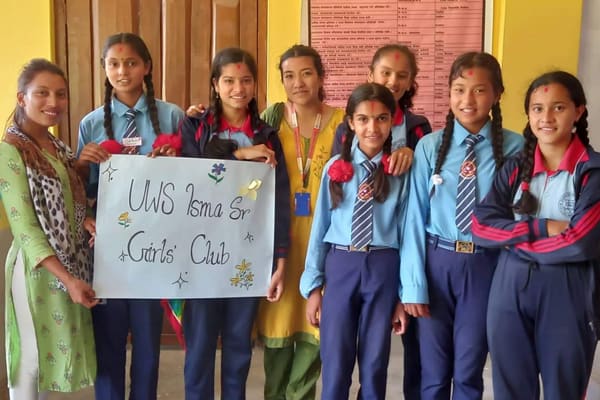
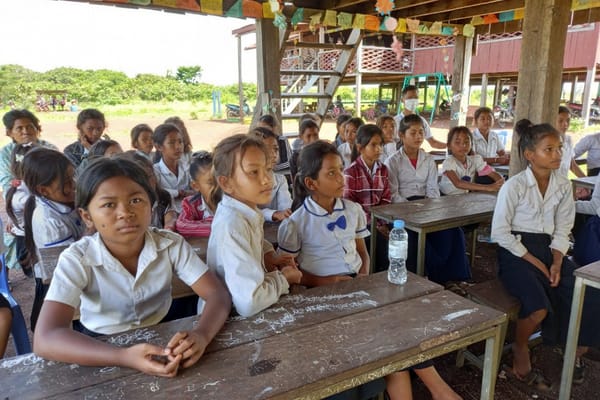
“I am a Girls’ Club Leader at my school. Before the girls’ club we did not have any study groups. Now I understand more about the importance of peer education. I feel more confident after being involved with the Girls’ Club”
- Yi*, Grade 6 Student at UWS Dey Kro Hom School.
In the Girls’ Clubs, sessions cover topics including, menstrual hygiene, gender equality and leadership development. To encourage leadership and self-esteem, UWS Girls’ Clubs have girl leaders, who are older students enrolled at the school. Yi* is a Girls’ Club Leader at UWS Dey Kro Hom School in Cambodia.
Older girls are often amongst the most at-risk of dropping out of school before finishing their primary studies in Grade 6. Many feel pressured to leave school to get married or to support their families. But Yi and her peers are determined. The Girls’ Clubs focus on educating girls about their rights as children and young people, and empowering them to advocate for human rights for themselves, their peers, families and communities.
The Girls’ Clubs are part of our wider Dropout Prevention Programme to address inequalities within education through long-term systemic change. These interventions include, among others, community-awareness meetings, assistance with children’s travel to school, establishing mothers’ groups, delivering holiday and evening classes, and providing sanitary kits and menstrual education for adolescent girls. The goal of the programme is to increase the retention rates for of over 5,000 primary-level children at-risk of dropping out across Nepal and Cambodia
United World Schools will continue to support children to realise their right to an inclusive education and provide them with the tools to shape their futures, on their own terms and build pathways to new opportunities.
*name has been changed in line with our child protection and safeguarding policy
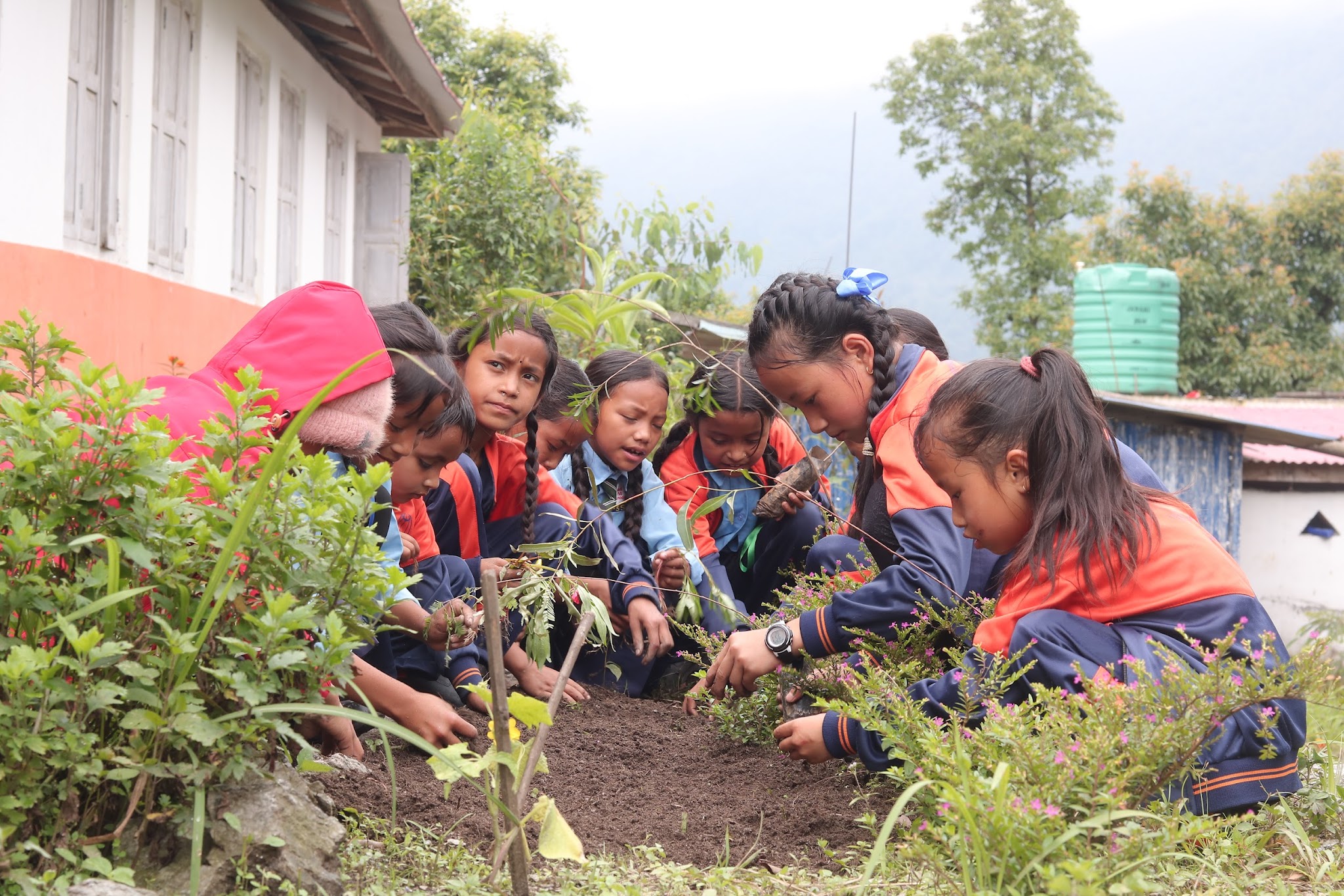
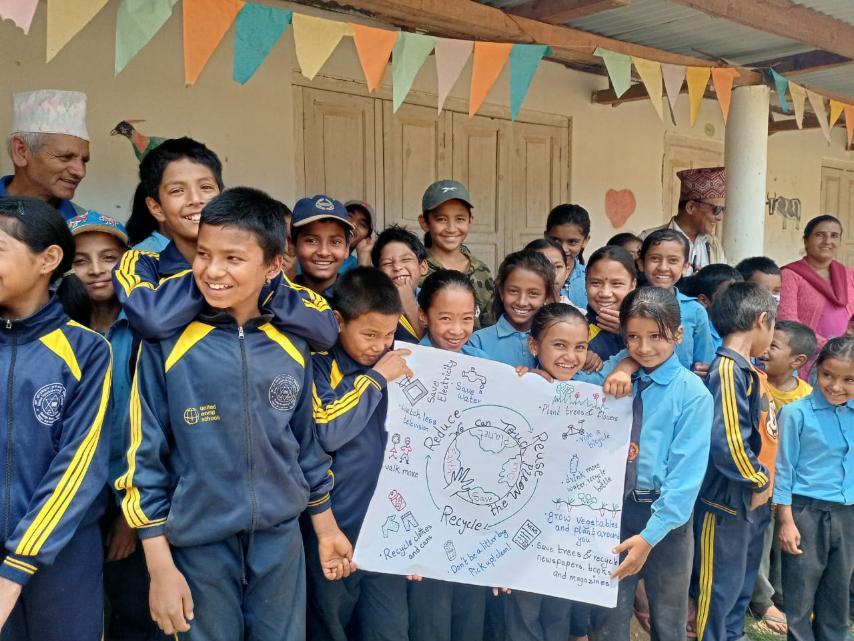
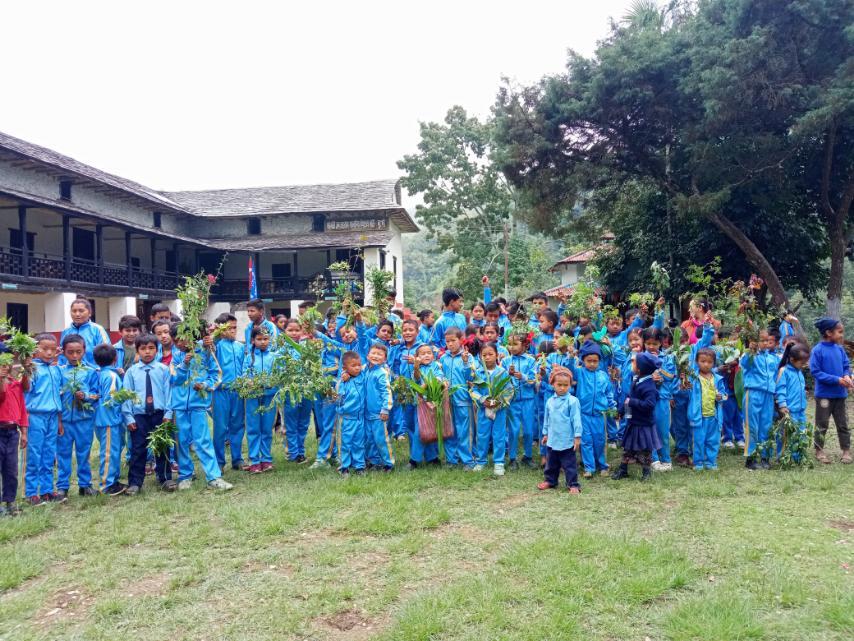
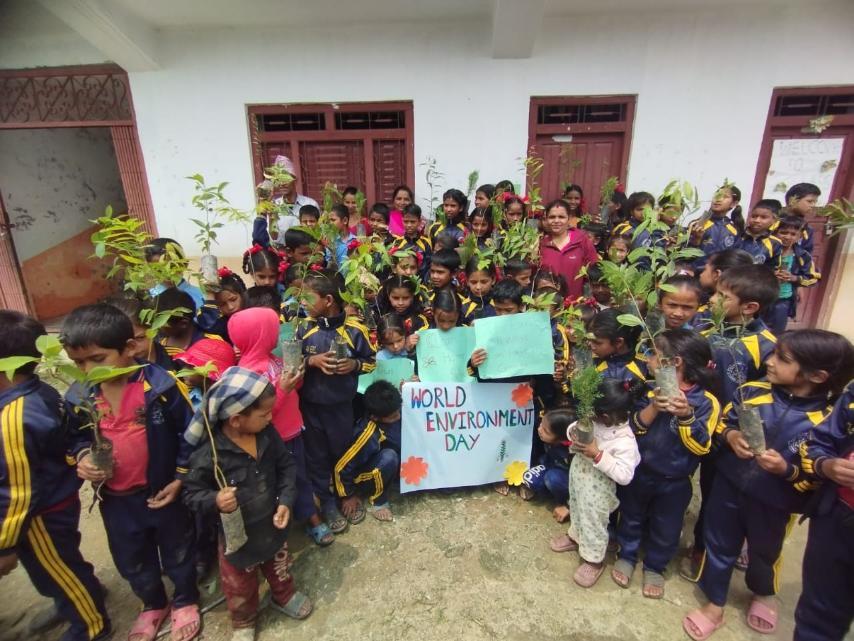
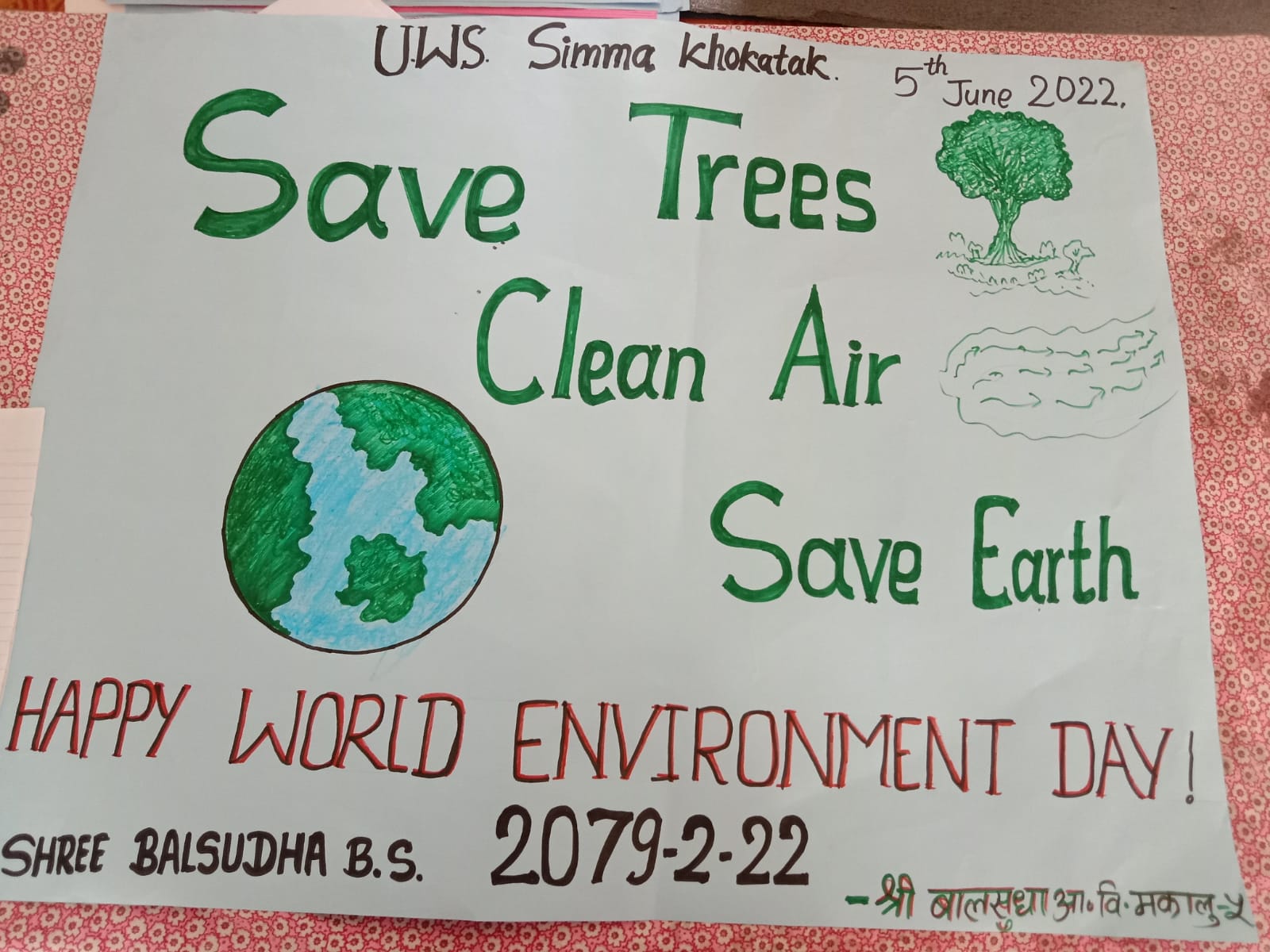
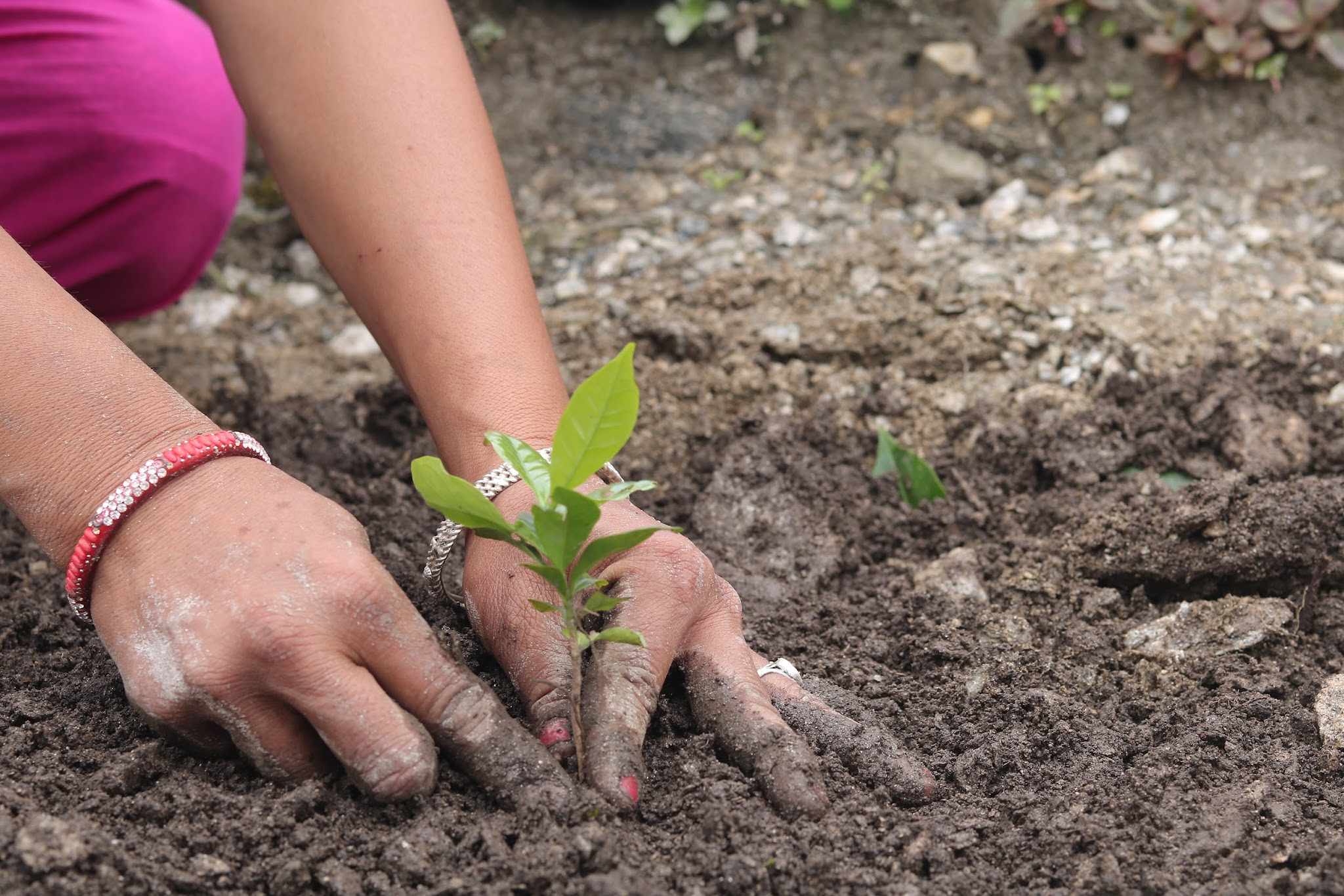
“I attended the pad making training for adolescent girls. After the training was conducted, I really appreciated that it will decrease monthly expenses, it is easy to produce as it made by hand, easy to clean and wash, it decreases environment impact and students will understand more about health and hygiene as well.”
- Senghun, UWS Dormitory Officer
“The pad making training is very important for adolescent girls and mothers to make them confident to discuss their period with the mother or friends and they will not need to worry about having no pad every month when they go to school or stay at home. They can make the cloth pad on their own to save the monthly cost and protect the environment for their community. Therefore, they can learn and also cascade this technique to their friends, sisters, or others in the community. Our Education Team along with mothers will support girls in producing pads and supporting menstrual hygiene management as they need” – Narith, UWS Cambodia Deputy Country Director & Education Manager
“I am very pleased to meet all the teachers from our UWS schools at the same place. We could share our experiences and make friendships. I could learn a lot of new teaching methodologies from the trainers. Especially, I’m very satisfied to learn how to get the interest of children to come to school happily.”
Daw Ju May (Community Teacher, Kyauk Maung Primary School)
“I am very pleased to meet all the teachers from our UWS schools at the same place. We could share our experiences and make friendships. I could learn a lot of new teaching methodologies from the trainers. Especially, I’m very satisfied to learn how to get the interest of children to come to school happily.”
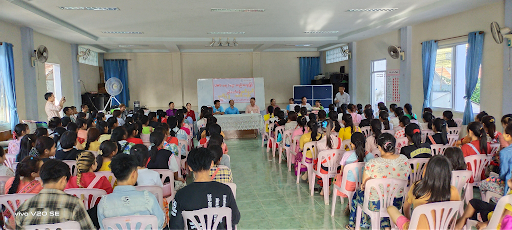
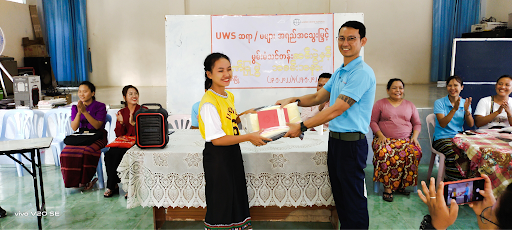
United World Schools works with some of the world’s most remote and marginalised communities to provide every child with a quality, inclusive education. We work with rural communities, who are often ethnic minorities, relying on subsistence farming with little to no educational infrastructure. Within the communities we serve, there are subgroups of children who are more vulnerable to educational exclusion and early dropout due to key demographic risk factors. These include living in extreme poverty, the challenges facing girls aged 11+, discrimination, students being overage for their grade, and having a difficult journey to school.
The risk of school dropout has only been exacerbated by Covid-19. Prolonged school closures have heightened the risk of child labour and child marriage, widened equity gaps, and eroded cultures of learning. Girls have been disproportionately affected, UNESCO warns that more than 11 million girls are at risk of dropping out and may never return to school. This not only threatens decades of progress made towards gender equality, but also places girls at greater risk of adolescent pregnancy and child marriage.
We are committed to ensure all children are safe, included and learning. In partnership with EAC, our three-year Dropout Prevention Programme will identify the United World Schools students who are most likely to drop out and provide targeted support to enable these children to stay in school.
In support of this, we have formed locally-established School Retention Teams (SRTs) in each UWS school in Nepal and Cambodia. SRTs are composed of teachers, community volunteers and UWS Education Officers, and over the course of the last months, they have undergone Dropout Prevention training sessions.
Amrit is a UWS Education Officer in Sankhuwasabha, Nepal. Through spending time living with the communities he works with, he has become acutely aware of the many barriers that children face to gain a quality education.
“I work with students from families who cannot afford simple stationery like pencils, erasers and sharpeners”, says Amrit. “Some students have to walk for more than two hours to reach a school, across flowing rivers and slopes at-risk of catastrophic landslides. Coming from families without a history of education, students often lack the guidance to complete their academic work at home”.
SRTs will use five key risk factors to identify the UWS students who are most likely to drop out, and then deliver a holistic package of interventions to enable them to stay in school. These interventions include, among others, providing school supplies, assistance with children’s journey to school, establishing mothers’ groups and girls’ clubs, delivering holiday and evening classes (as pictured below), and providing sanitary kits and menstrual education for adolescent girls.
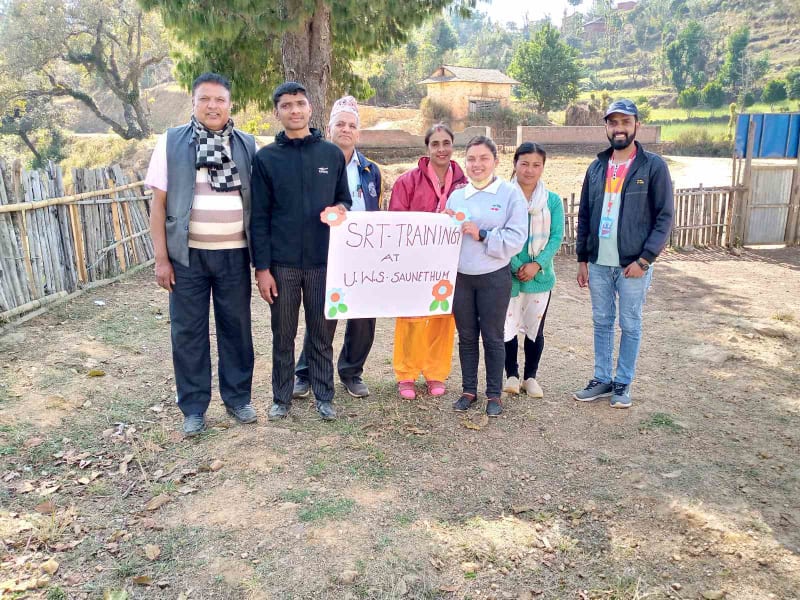
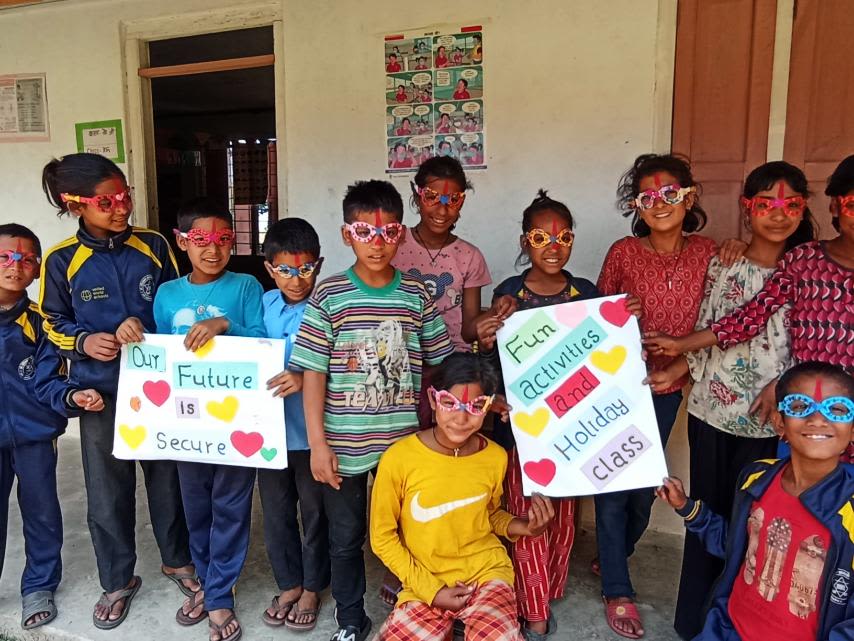
“I am happy that United World Schools is partnering with EAC to bring the Dropout Prevention Programme to UWS schools”
- Amrit
“I strongly believe that this project will not only be crucial to retaining students who are at risk of dropout, but also to bring back and inspire students who have previously dropped out”.
United World Schools will continue to support the most marginalised children to claim their right to an inclusive education and provide them with the tools to shape their own futures, on their own terms. The goal of this programme is to increase the retention of over 5,000 high risk and most at risk children in primary education across Nepal and Cambodia.
We are proud to be launching our Dropout Prevention Programme in partnership with Educate A Child. Over the course of this project, we will be sharing more information about the progress of interventions and the experiences of our teachers and students across the communities we support.
